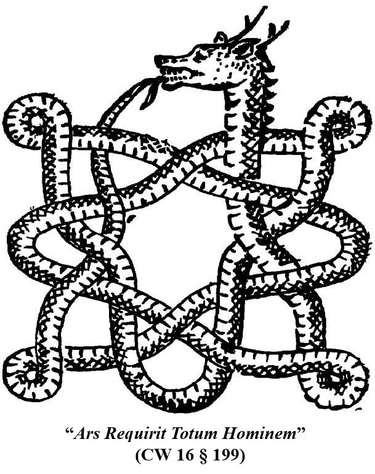94 Introduction
CW 6 - Psychological Types
100 Nominalism and realism c. Abelard's attempt at conciliation
101 The Holy Communion controversy between Luther and Zwingli.
99 Nominalism and realism b. The problem of Universals in Scholasticism
98 Nominalism and realism a. The problem of universals in antiquity
97 The problem of transubstantiation
96 The theological disputes of the ancient church.
95 Psychology in the classical age the Gnostics Tertullian Origen
106 A discussion on naive and sentimental poetry. c. The idealist and the realist.
105 A discussion on naive and sentimental poetry. b. The sentimental attitude
104 A discussion of naive and sentimental poetry. a. The naive attitude
103 Letters on the aesthetic education of man. b. Concerning the basic instincts
102 Letters on the aesthetic education of man. a. The superior and inferior functions
107 The Apollianian and the Dionysian
108 General remarks on Jordan's types.
109 Special description and criticism of Jordan's types. a. The introverted woman.
111 Special description and criticism of Jordan's types. c. The extraverted man.
110 Special description and criticism of Jordan's types. b. The extraverted woman.
112 Special description and criticism of Jordan's types. d. The introverted man
113 Introductory remarks on Spitteler's typology
114 A comparison of Spitteler's with Goethe's Prometheus
115 The significance of the uniting symbol. a. The Brahmanic conception of the problem of opposites.
116 The significance of the uniting symbol. b. The Brahmanic concept of the uniting symbol.
117 The significance of the uniting symbol c. The uniting symbol as the principles of dynamic regulation.
118 The significance of the uniting symbol. d. The uniting symbol in Chinese philosophy
119 The relativity of the symbol. a. The worship of woman and the worship of the soul.
120 The relativity of the symbol. b. The relativity of the God concept in Meister Eckhart
121 The nature of the uniting symbol in Spitteler
122 The type problem in psychopathology.
123 The type problem in aesthetics.
124 William James types
125 The characteristic pairs of opposites in James types. a. Rationalism versus empiricism
126 The characteristic pairs of opposites in James types. b. Intellectualism versus sensationalism.
127 The characteristic pairs of opposites in James types. c. Idealism versus materialism.
128 The characteristic pairs of opposites in James types. d. Optimism versus pessimism
129 The characteristic pairs of opposites in James types. e. Religiousness versus irreligiousness
130 The characteristic pairs of opposites in James types. f. Indeterminism versus determinism.
131 The characteristic pairs of opposites in James types. g. Monism versus pluralism h. Dogmatism versus scepticism.
132 General criticism of James' typology.
133 The type problem in biography.
134 Introduction.
135 The extraverted type. a. The general attitude of consciousness.
136 The extraverted type. b. The attitude of the unconscious
137 The extraverted type. c. The peculiarities of the basic psychological functions In the extraverted attitude. Thinking. The extraverted thinking type
138 The extraverted type. c. The peculiarities of the basic psychological functions in the extraverted attitude. Feeling. The extraverted feeling type.
139 The extraverted type. c. The peculiarities of the basic psychological functions in the extraverted type. Summary of the extraverted rational types
140 The extraverted type. c. The peculiarities of the bask psychological functions in the extraverted attitude. Sensation. The extraverted sensation type
141 The extraverted type. c. The peculiarities of the basic psychological functions in the extraverted attitude. Intuition. The extraverted intuitive type.
142 The extraverted type. c. The peculiarities of the basic psychological functions in the extraverted attitude. Summary of the extraverted irrational types.
143 The introverted type. a. The general attitude of consciousness.
144 The introverted type. b. The attitude of the unconscious.
145 The introverted type. c. The peculiarities of the basic psychological functions in the introverted attitude. Thinking. The introverted thinking type.
146 The introverted type. c. The peculiarities of the basic psychological functions in the introverted attitude. Feeling. The introverted feeling type
147 The introverted type. c. The peculiarities of the basic psychological functions in the introverted attitude. Summary of the introverted rational types.
148 The Introverted type. c. The peculiarities of the basic psychological functions in the introverted attitude. Sensation. The introverted sensation type.
149 The introverted type. c. The peculiarities of the basic psychological functions in the introverted attitude. Intuition. The introverted intuitive type.
150 The introverted type. c. The peculiarities of the basic psychological functions in the Introverted attitude. Summary of the introverted irrational types.
151 The introverted type. d. The principal and auxiliary functions
152 Definitions
153 Epilogue.
154 A contribution to the study of psychological types
155 Psychological types
156 A psychological theory of types.
157 Psychological typology.
